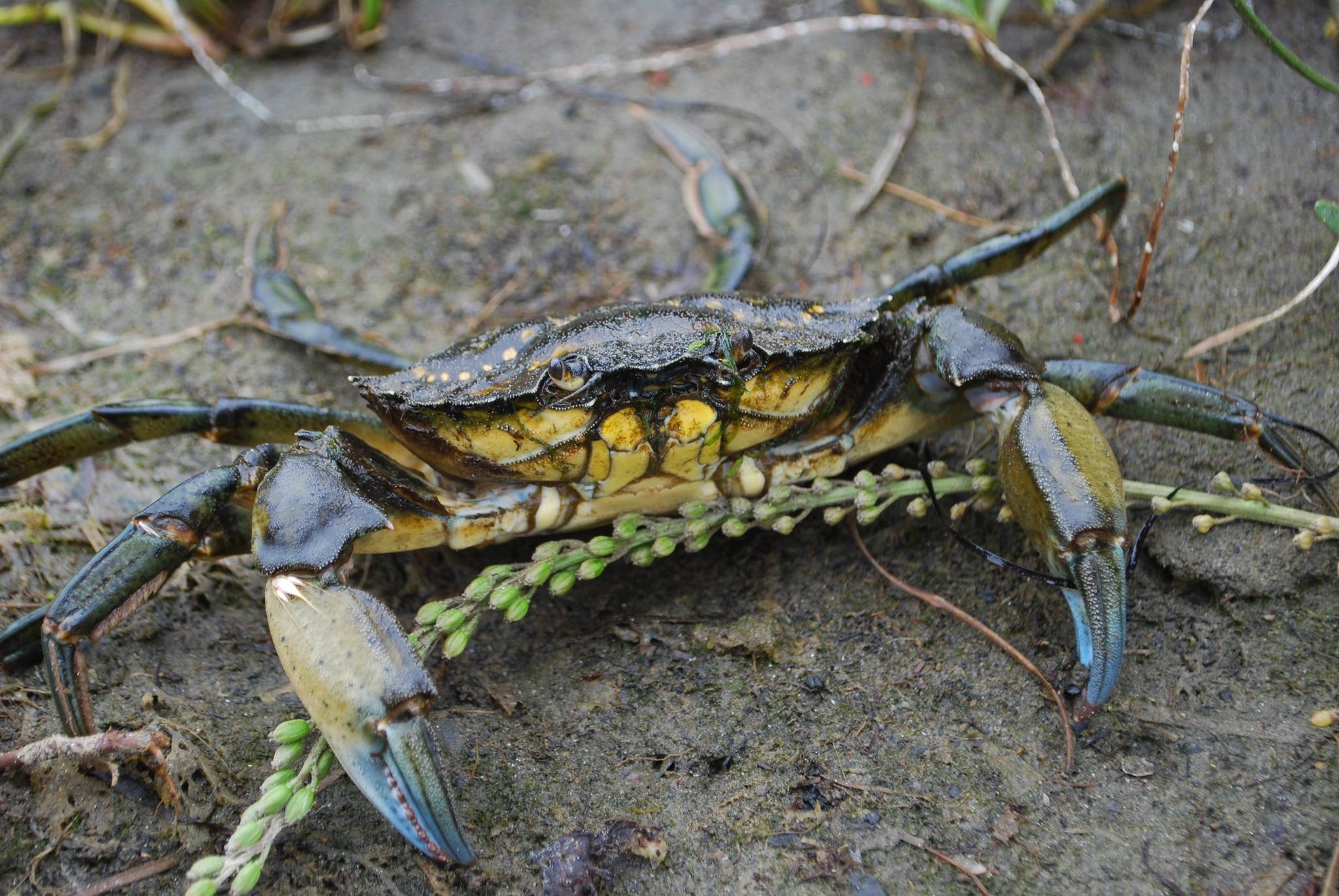Submitted by the Sea Doc Society
The European green crab is a damaging invasive species that has wreaked havoc on ecosystems around the world, and recently they’ve found their way into the Salish Sea. Thanks to Washington Sea Grant’s Crab Team, major scientifically based efforts are being made to stop its spread before it starts. For this use of science to improve the health of the Salish Sea, this Earth Day they have been announced as winners of the SeaDoc Society’s 2020 Salish Sea Science Prize, which comes with a $2,000 no-strings-attached cash award.
When introduced into ecosystems outside of its native range, the green crab’s impact has been both ecological and economic. Not only do they disturb native habitat, displace resident species and alter natural food webs, but they have decimated shellfish industries upon which livelihoods depend. Amid the current COVID-19 pandemic, the Crab Team’s work is a reminder that intervention is most effective before the impacts of an invasion even become visible.
Emily Grason, Program Manager for Crab Team, says, “This species is probably the most notorious and damaging marine invasive on the planet, and it’s unfortunately not just on our doorstep here in the Salish Sea, but it’s wandered into our foyer as well. Our goal is to keep it from overstaying its welcome.”
European green crabs can release thousands of larvae that can live up to 80 days and travel hundreds of kilometers in ocean currents. As generalist feeders, they have been linked to the destruction of crucial eelgrass and marsh habitats. They could potentially impact shellfish, Dungeness crab and salmon populations, which has the added potential to affect endangered Southern Resident orcas further up the food chain.
In the Salish Sea, the only self-sustaining population of European green crabs is in the Sooke Basin, British Columbia, but smaller numbers have been spotted in other parts of BC and Washington State.
Our best chance to avoid a long-lasting population is early detection of and response to any spread. Washington Sea Grant’s Crab Team was launched in 2015 at the urging of the Washington Department of Fish and Wildlife. WSG Crab Team created a volunteer-based early detection and monitoring program that included outreach to the public and provided technical expertise to state, federal and tribal resource managers. This was the first pre-emptive monitoring program in the U.S. for this species.
Among their first action steps, Crab Team developed a scientifically based map of “at-risk” sites that allowed prioritized monitoring of susceptible pocket estuaries and lagoons. They also developed a robust protocol for community volunteers to help monitor for new sites of invasion. And, based on oceanographic and genetic studies coordinated by Washington Sea Grant and conducted in collaboration with researchers at UW Oceanography and Woods Hole Oceanographic Institution, Crab Team supported development of the Salish Sea-wide transboundary action plan for detecting and responding to green crab the invasion.
“We’re trying to learn as much as possible from this crab, even as we work to prevent it from invading, and feed what we learn right back into management,” said Grason. “The science we’re doing is not merely a bonus, it’s central to our ability to protect Salish Sea shorelines from European green crab.”
Strong science and a collaborative effort led by Washington Sea Grant’s Crab Team now allows us early detection, rapid response to new detections, control of infested sites and continued strategic research to improve management.
The SeaDoc Society, a program of the UC Davis Karen C. Drayer Wildlife Health Center, awards the Salish Sea Science Prize every two years in recognition of scientists whose work will result in the improved health of fish and wildlife populations in the Salish Sea. SeaDoc awards the prize in honor of the late Stephanie Wagner, who loved the Salish Sea and left a legacy gift to ensure its protection.
The award comes with a $2,000, no-strings-attached cash prize that is typically awarded in a ceremony at the Salish Sea Ecosystem Conference, which is being held virtually this year due to the coronavirus pandemic. The team accepted the prize Wednesday morning, April 22.
Joe Gaydos, SeaDoc Society Science Director, said, “In a day and age when many people doubt scientific results or don’t understand the value of science, this prize reminds us that science places a foundational role in recovering ecosystems like the Salish Sea.”



